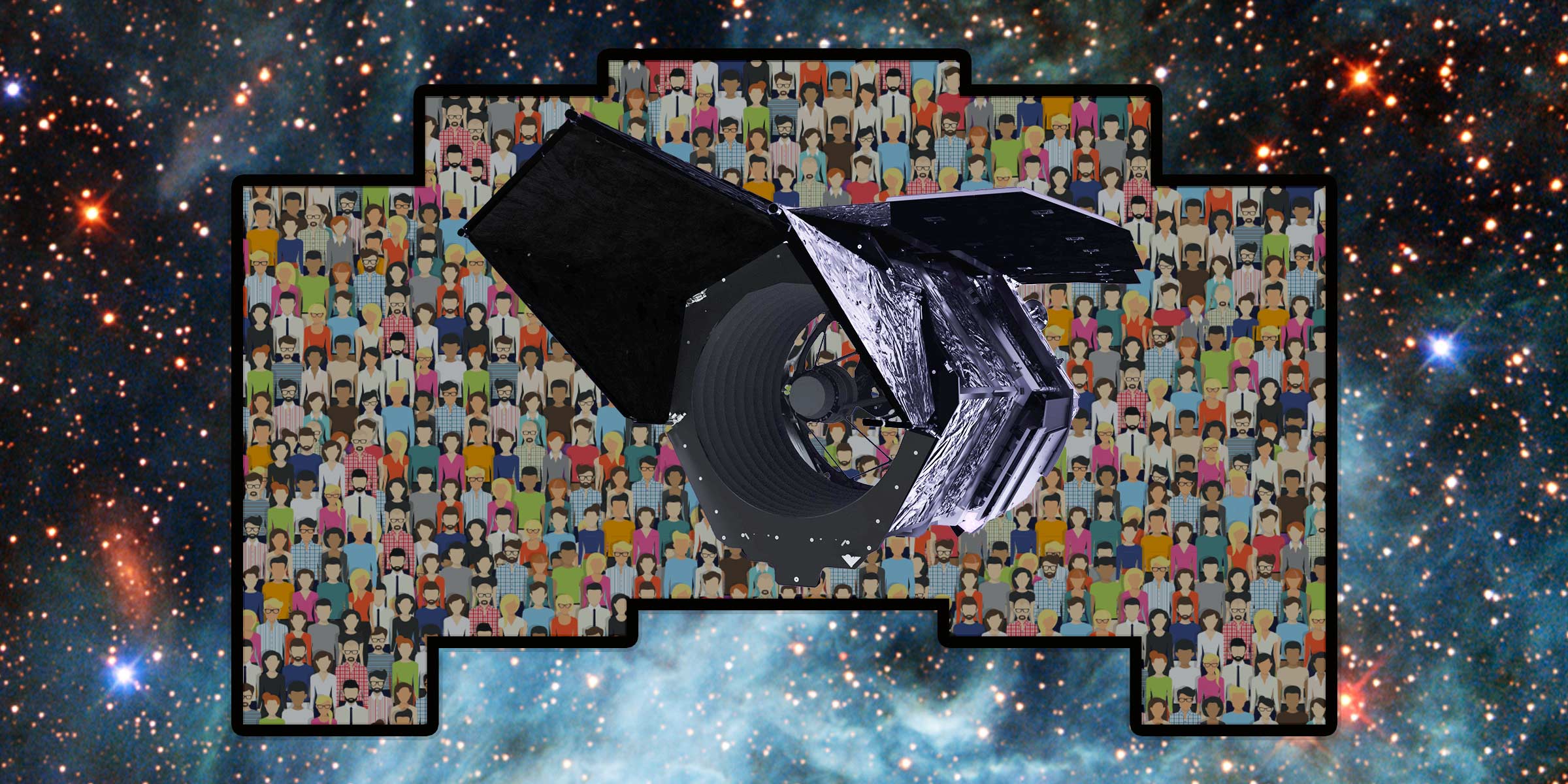Call for Self-Nominations for the Roman Community Survey Committees
Karoline Gilbert Space Telescope Science Institute

The Roman Mission announces the opportunity for self-nominations for membership on the committees that will undertake the work of defining the observational strategies for Roman’s Core Community Surveys. Self-nominations are due by 14 August 2023.
The Nancy Grace Roman Space Telescope, NASA's next flagship observatory, is planned for launch in late 2026. The Roman Mission requests the astronomical community's participation in the community-led definition of the Roman Space Telescope's three Core Community Surveys. Combined, these surveys are anticipated to use the majority of the observing time during Roman’s first five years. The Core Community Surveys will include a High Latitude Wide Area survey, a High Latitude Time Domain survey, and a Galactic Bulge Time Domain survey. Significant parameter space is available to define the observational strategies (filters, depth, area, cadence, location, etc.) in a way that will enable a broad range of astrophysical investigations.
The work of crafting an observational strategy for each survey that maximizes their overall science return, while meeting Roman Mission objectives in cosmology and exoplanet demographics, will be undertaken by the Core Community Survey definition committees. These committees, one for each Core Community Survey, will be composed of members of the astronomical community who represent the breadth of science the community wants to see enabled with each Core Community Survey, and the diversity of the astronomers who will ultimately use Roman’s datasets.
This call for self-nominations is the first step in forming Roman’s community survey definition committees. All members of the astronomical community are encouraged to self-nominate to be considered for membership on the committees that will be tasked with defining the Core Community Surveys.
For full details on this call for self-nominations, including the anticipated tasks, timeline, and support for these committees, as well as submission instructions, please visit the web page.
If you have questions about the self-nomination process, please send an email with the subject line: “Roman community survey committee self-nomination.” This will send your question simultaneously to the help desks of both Roman Science Centers ([email protected] and [email protected]).
FAQ: How is this related to the recent requests for community input into Roman’s Core Community Surveys?
The recent Call for Community Input into the Definition of the Roman Space Telescope’s Core Community Surveys requested science pitches and white papers describing science investigations the community wants to see enabled by Roman’s community surveys, and the observational strategies that would enable those science investigations. The science pitches (the content of which are summarized in an STScI Newsletter article) and white papers will be given directly to the community survey definition committees and will be used to identify and prioritize science drivers for defining the surveys, and to inform the committee’s deliberations on observational strategies.
FAQ: How is this related to past and future NASA ROSES Calls for Roman Science Investigations and what other avenues are there to get involved with Roman?
An overview article in the STScI Newsletter summarizes the various ways the community can get involved with Roman. Members of the science community at US institutions were recently invited to apply for support to participate in Roman preparatory science activities, and will have future opportunities to apply for funding, via the Roman elements of ROSES solicitations. However, this is separate from the process by which the Core Community Surveys will be defined. Funded science teams are not responsible for defining or implementing the surveys.
The community survey definition committees will be charged with engaging with and requesting feedback from the astronomical community throughout the process of defining the surveys. There will thus be other, future opportunities to provide input into the definition of Roman’s Core Community Surveys.

